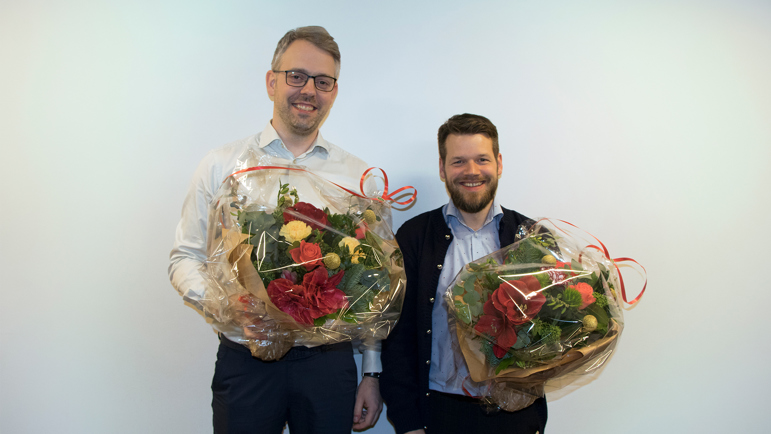
Two PhD’s in the same week at Havsbrún
21.12.2018
The end of week 50 was very special at Havsbrún because two of the employees finished their PhD’s.
On the 13th of December Rúni Weihe defended his PhD thesis in the Norwegian University of Life Sciences (NMBU) about the balance between fat and protein in salmon feed. The conclusion of the thesis is:
A salmon that receives a high protein feed compared to a high fat feed will utilize the feed better and grow faster, especially in the autumn
A high protein feed strategy results in less fat is getting attached to the salmon’s intestines and gives a higher harvest yield
Even though a feed with a high protein inclusion has a higher initial cost price, calculations show that a better utilization of the feed, shorter growth cycle and higher harvest yield result in a better overall economic result
On the 14th of December Hans Jákup Jacobsen defended his PhD thesis in the University of Bergen in Norway. The title of the thesis is "Development and application of solid state fermentation enzymes in soy-based Atlantic salmon feeds". In the thesis Hans Jákup proves that the enzyme from the fungus Aspergillus niger can break down some anti-nutrients that can be found in soya oil and can cause infection/inflammation on the salmon’s intestines. These anti-nutrients and the consequences of them can lead to lower digestion, slower growth and bad salmon health. This is important as the industry in the last 20 years has shifted from using a high inclusion of fish oil to high inclusion of plant oils in the salmon feed.
The results of the two PhD thesis are interesting and is part of Rúni and Hans Jákup’s daily work at Havsbrún where they continuously strive to develop a better salmon feed.